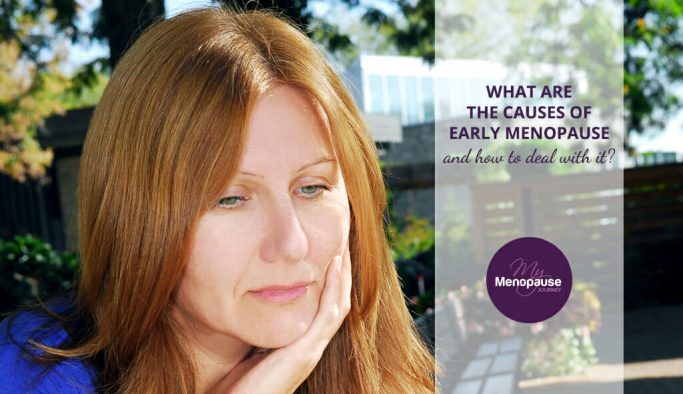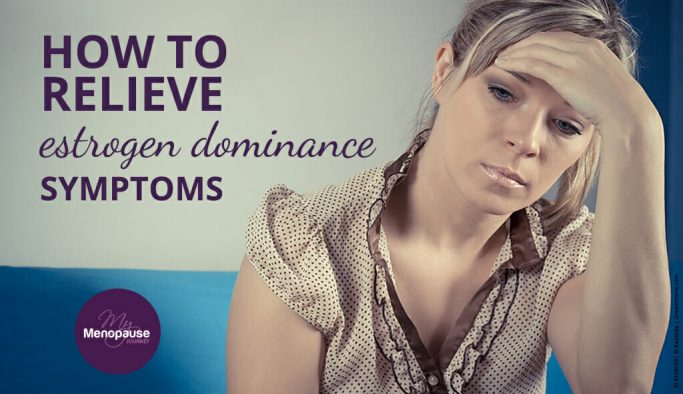What’s your daily routine like?
As we navigate midlife, it’s quite common to feel like life’s pulling us in a million different directions. Between juggling career demands, family responsibilities and personal aspirations, the vibrant energy we used to have can sometimes feel like it’s slipping through our fingers!
Many women in this stage find themselves grappling with chronic tiredness and stress — a condition often referred to as adrenal fatigue. But hey, you’re not alone in this wild midlife trail!
In this article, we’ll explore practical strategies to boost your energy levels, reduce stress and live your best days in midlife. But first, let’s explore what really happens when our adrenals are struggling — so we’ll know how we can best support them!


A Hiccup in the HPA Axis: What is Adrenal Fatigue?
Many of us in midlife probably wake up to a busy household — preparing food, getting those errands done, supporting our partner or catching up with work deadlines.
At first, you feel okay and get by. But as the daily routine turns into a weekly pattern — and weekly turns into monthly — you notice that some heaviness begins to settle in.
You feel like you’re carrying an invisible backpack filled with rocks — each representing a worry, a duty or a stressor. THAT‘s how adrenal fatigue feels like. It’s an unexplainable kind of stress and tiredness that seem to have no direct cause. But, as with any symptom, of course there is a root cause!
Essentially, adrenal fatigue develops due to chronic stress. This can, in turn, disrupt the normal functioning of the hypothalamic-pituitary-adrenal (HPA) axis. A disrupted HPA axis can then cause cortisol (stress hormone) levels to be too high at first — and eventually drop too low as the system becomes overloaded. Meaning, the adrenal glands (responsible for producing our stress-regulating hormones) struggle to keep up with the demands of chronic stress.
So, it’s not really the adrenals getting exhausted; it’s the feedback loop in the HPA axis being lost — due to some “system overload”! The adrenals are not getting the signals from the brain that they need to make more hormones — leading to an unpleasant mix of physical and emotional symptoms.
“Does this mean that when I’m facing a stressful situation, I will have adrenal fatigue?”
No, not that immediately. With adrenal fatigue, the villain is chronic stress — the type that’s consistently there and long-term. It’s the lingering stress that’s sort of playing in the background of your life for some time! This kind of stress could be due to:
• Nutrient deficiencies
• Lifestyle factors (poor sleep quality, lack of physical activity)
• Emotional factors (personal struggles, career demands, relationship conflicts).
While “adrenal fatigue” isn’t an officially recognized medical condition, many women experience symptoms that feel very real. In quiet moments of your busy day, you might find yourself asking, “Why do I feel this way? I should be able to handle everything like always did.”
And it’s easy for us to feel guilty, confused and alone on this path. The pressures of life can be relentless, but the good news is we can take steps toward feeling better!
The Invisible Load: What are the Symptoms of Adrenal Fatigue?
Adrenal fatigue can be felt in many ways, including:
Chronic Exhaustion: Despite getting enough sleep, you wake up feeling tired and struggle to find energy throughout the day.
Physical Symptoms: You have energy crashes during the day, cravings for sugar and processed foods, brain fog that makes it difficult to focus and a general sense of being demotivated.
Emotional Turbulence: You tend to have more mood swings, feel irritable and easily get overwhelmed.
Now, the question is, how exactly does adrenal fatigue develop?
In the previous section, we’ve discussed how stress can mess with the HPA axis — and how it eventually leads to adrenal fatigue. To give you a clearer picture, let’s try to divide that into three stages:
Stage 1: Stress hormones spike.
When you’re under stress, the adrenals release large amounts of cortisol, adrenaline and other fight-or-flight hormones. Initially, this feels like a “rush” where your energy peaks and have eagle-eye focus. In this stage, there are no complaints because it’s a feel-good kind of alertness.
Cortisol and other stress hormones are basically not bad, you know? They help us figure out and handle stressful situations. What makes the situation “bad” is when our stress hormones are always elevated! They can build up in your blood, overwork your organs, slow down many vital processes in the body and lead to adrenal exhaustion.
Stage 2: Stress hormones drop.
Adrenal exhaustion starts at this stage, where your adrenal glands become sluggish. Hormone production declines and you begin feeling the symptoms of adrenal fatigue:
- Extreme fatigue (despite long hours of sleep)
- Oversleeping (as your mind and body may confuse the tiredness from lack of sleep)
- Sleep deprivation (when the exhaustion is felt more mentally and emotionally, making it hard to get good sleep quality)
- Anxiety and depression
- Brain fog
- Muscle and joint pain
- Numbness in some parts of the body
- Dehydration
- Low libido
- Intense food cravings
- Heart palpitations
- Weight gain
Stage 3: Stress hormones reach an all-time low.
In this stage, we can think of the adrenal glands being in “hibernation mode”. Sometimes, they wake up and give the body small amounts of stress hormones — but they remain consistently low.
The result? With only little amounts of hormones that are supposed to help us regulate stress, our body goes on autopilot. Bodily functions are affected, burnout happens and adrenal fatigue symptoms become more persistent.
Dr. John Douillard explains adrenal fatigue from an Ayurveda perspective. He says that when we are under stress, our adrenals keep us going by producing energy that we don’t have. It’s like borrowing money from the bank; we always have to pay it back. But in our body, the payback comes in the form of symptoms. Watch this insightful video of Dr. Douillard to understand your body more!
Love yourself and your body will love you back!
The Impact of Adrenal Fatigue on Women’s Menopause Experience
Adrenal fatigue isn’t only an experience on its own — it does have a flow-on effect on our midlife experience:
1. Tired adrenals mean we lose our backup supply of estrogen or progesterone as we hit menopause.
When the ovaries slow down its production of our key female hormones, the adrenals take over in producing DHEA. This “mother hormone” activates and converts to estrogen or progesterone as needed!
The adrenals produce testosterone as well, which may also be converted to estrogen. Yes, the adrenal glands are the powerhouse of hormones that naturally decline in menopause! So, if we have adrenal fatigue, we are also losing that backup hormonal supply.
2. Tired adrenals can trigger or worsen menopause symptoms.
Remember the last stage… stress hormones reach an all-time low? Meaning, if we have adrenal fatigue, we don’t have enough stress-regulating helpers in our body. That doesn’t only affect how we manage our emotional stressors; being low on these hormones may also slow down many vital processes in the body — including metabolism, digestion and brain function!
3. Adrenal fatigue and brain chemicals are closely linked.
Acute or chronic stress (whether mental, physical or mental) can directly mess up with the balance of our brain chemicals, also known as “neurotransmitters”. No wonder we feel moody, irritable and mentally foggy when we’re stressed and exhausted!
With adrenal fatigue, it’s not just that your adrenal glands are not working optimally. As mentioned earlier, they also fail to receive signals from the brain — to produce the hormones we need for managing stress and maintaining stable energy. As a result, cortisol levels can remain persistently low — leaving us feeling trapped in a cycle of exhaustion.
4. Symptoms of adrenal fatigue can mask menopause.
The symptoms of these two conditions are similar, and yes, it can be hard to set them apart. But I’ll let you in on a little secret: Adrenal fatigue symptoms rarely include hot flashes and night sweats!
How to Recover from Adrenal Fatigue — Here are 4 Natural Treatments!
In midlife, whether you have adrenal fatigue or not, it’s so important to prioritize our health. It’s not about doing it all; it’s about finding a rhythm that allows you and your body to thrive!
With time and commitment to self-care, oh, just watch the gradual changes in how you feel! The rocks in your backpack will start to lessen — making you feel lighter and more ready to embrace each new day!
Here’s how you can recover from adrenal fatigue with a healthy, balanced lifestyle:
Rest, Recover, Reset!
Listen to your body. Remind yourself that it’s okay to take a step back. Remember, stress is at the root of adrenal fatigue, so we have to address it first!
Recognize the importance of rest and setting aside moments for yourself. Along with that, try to establish a more balanced daily routine:
- Get 7-9 hours of restful sleep every night. It’s all about deep, restorative slumber!
- Have a social media detox — skip all the stimulation from news and gadgets!
- Prioritize. We don’t always have to be superwomen in a single day. Some things can wait until tomorrow!
- Assess your social relationships. It’s okay to say “no” sometimes, especially to those who are draining your energy.
- Relax with natural remedies, like essential oils and herbal teas!
Or why not try different types of natural therapy?
Acupuncture, acupressure, chiropractic care, aromatherapy, reiki and reflexology are great natural therapies to relieve stress! Homeopathy and Ayurveda are mind-body practices that can also regulate stress hormones and keep you feeling balanced. No harm in trying, they’re all natural anyway!
Go for Nourishing Choices!
Focus on nutrition. Eat whole, nutrient-dense foods that bolster your energy and mood — rather than relying on quick fixes, like sugar and processed foods!
A healthy plate guaranteed to support your health in midlife should include good proteins, low-carb foods, healthy fats and veggies.
You can also incorporate adaptogenic herbs such as ashwagandha, rhodiola and holy basil), as they have stress-reducing and hormone-balancing properties!
And foods with antioxidants are especially good for reducing stress. My natural antioxidants are veggies, fish, berries, beans, legumes, nuts, seeds, herbs and spices. They flush out toxins, curb cravings and regulate your stress hormones!
You would also want foods rich in vitamin C, omega-3 and zinc. All these nutrients boost vital processes in the body and strengthen your immunity!
How about supplements?
I am all for getting your nutrients from food but in stressful times, I do help my system calm down. B-vitamins, magnesium, selenium and ashwagandha are my go-to!
GABA and tryptophan are your mood besties, too. They help produce serotonin and dopamine — which both make you feel good, calm and relaxed!
Keep It Light and Easy!
Staying active is beneficial for many aspects of our health in midlife, but if you have adrenal fatigue, it’s best to keep your movements lighter and more relaxing!
Exercise doesn’t always mean long cardio and all those vigorous routines. Going out in nature, walking, rebounding and doing any activity you enjoy (while you keep your body moving) is already great!
Gentle yoga or stretching can also work wonders for releasing tension accumulated throughout the day. When your body is in action, you’re improving blood circulation and flushing out excess stress hormones — which may be adding to adrenal fatigue.
Foster Emotional Awareness!
Find value in practices, like journaling, meditation and breathing techniques, that help you process your feelings and reduce emotional load.
Are There Tests for Adrenal Fatigue?
There is no specific medical test for adrenal fatigue. However, a doctor may order blood or saliva tests to check hormone levels that could serve as markers for adrenal fatigue. That includes:
Cortisol test: This test involves measuring the level of cortisol in the blood, often taken in the morning when cortisol levels are typically highest. Abnormal cortisol levels—whether too high or too low—can indicate issues with adrenal gland function.
ACTH Stimulation Test: In this test, a healthcare provider administers a synthetic version of ACTH (adrenocorticotropic hormone) through an injection.
After the injection, blood samples are taken at various intervals. These samples allow healthcare professionals to measure the cortisol response of the adrenal glands. A healthy adrenal gland should produce an appropriate amount of cortisol in response to ACTH. If the adrenal glands are fatigued or stressed, the cortisol levels may not rise adequately.
Functional medicine practitioners may use these to evaluate stress response and recommend more holistic treatment plans, including diet changes, stress management techniques, nutritional supplements and more!
Adrenal fatigue is much more than just the adrenals getting tired.
Fatigue is a complex issue that runs much deeper than simply tired adrenal glands. For many women, this exhaustion is joined by a sense of isolation and the weight of countless responsibilities. Many find themselves in a bubble where brain fog and relentless tiredness become the new norm!
And the question arises: Why do women seem to suffer from fatigue more than men?
One significant factor is our natural tendency to take on too much — always striving to be available for others, to juggle work, family and social obligations.
It’s all too easy to blame men for not sharing these burdens, but that might be oversimplifying a complex dynamic, don’t you think?
Many of us experience this deep, involuntary loneliness and a lack of belonging in midlife, which can significantly contribute to stress levels. The internal pressure to be “good enough” only adds to this burden!
Unlike us women, some men may also lean more on solution-oriented approaches, sometimes missing the emotional nuances that accompany our challenges.
As fatigue weighs heavily on the body and anxiety settles in, many women feel overwhelmed — leading to guilt for not being able to manage home and family. That emotional turmoil can leave partners confused, wondering where the vibrant and engaged woman they knew has gone.
Escaping this relentless cycle takes time and introspection. It’s not merely about trying to “get back” to how things were! Instead, it involves a thoughtful realignment of priorities and responsibilities.
It may require simplifying life’s complexities—perhaps by reducing the number of roles we take and the expectations we set for ourselves. By doing this, we can begin to restore balance and reclaim our energy — paving the way toward a healthier, more fulfilling life!
How do you handle everyday stress?
Tips are appreciated – share in the comment box below
References:
ncbi.nlm.nih.gov/pmc/articles/PMC4997656/
sciencedirect.com/science/article/pii/S2212962614000054
intechopen.com/books/clinical-management-of-adrenal-tumors/sudden-death-due-to-diseases-of-the-adrenal-glands-and-paraganglia
a4m.com/assets/pdf/medical-news/A4M_Hypocortisolism_paper_draft_3-Final.pdf
pmc.ncbi.nlm.nih.gov/articles/PMC4728667/
mdpi.com/2227-9059/11/12/3128
👉 What to Do Next
Don’t go just yet — especially if you’ve been feeling off and no one’s given you real answers.
Go to the START HERE page.
It’s where things begin to feel clearer. No more second-guessing, no more sorting through conflicting advice. Just calm, honest support for where you are right now.
And if you haven’t yet, download the FREE GUIDE.
It’s quick, clear, and made to help you feel better — without having to turn your whole life upside down.


Gita is the founder of My Menopause Journey. Since 2014, she has been supporting midlife women by sharing hard-earned learnings from her own experience. To advance her knowledge, Gita puts a lot of her time and effort into understanding the broad spectrum of women’s health. She immerses in extensive research about the physical, mental and emotional aspects of menopause. Gita believes in the life-changing power of healthy, holistic living — this is where she anchors her message to all women. Learn more about her marvelous mission in About us - My Menopause Journey.






I had adrenal fatigue a few years ago. I consulted a naturopath, who prescribed licorice root capsules. It really helped!
Hi @Vivian,
Thank you for connecting and for sharing a helpful tip.
Licorice has adaptogenic properties so it’s a great stress and hormone balancer. 😊 I too tried licorice, in candy form, which was quite nice, but I had a bit of a reaction to it. Licorice can cause allergies for some people.
Thank you and all the best!
Gita 💜
This is an amazing, informative article and video. Thank you for all the good advice and strategies to combat adrenal fatigue.
Thank you! Yes, we try to make our articles as informative as possible.
Gita
Very interesting.